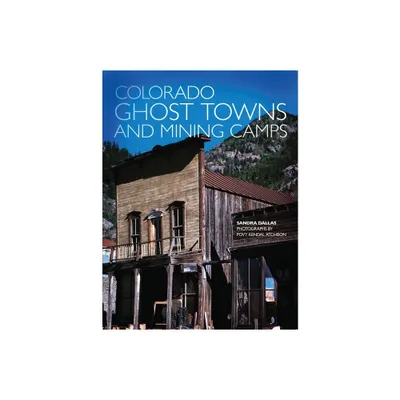Home
The Mining Towns of the Bohemian Ore Mountains
Loading Inventory...
Barnes and Noble
The Mining Towns of the Bohemian Ore Mountains
Current price: $35.00


Barnes and Noble
The Mining Towns of the Bohemian Ore Mountains
Current price: $35.00
Loading Inventory...
Size: OS
*Product Information may vary - to confirm product availability, pricing, and additional information please contact Barnes and Noble
A history of the lost art of the Bohemian Ore Mountains.
The development of mining towns in the Ore Mountain region of Bohemia during the thirteenth to the sixteenth century was driven by the Saxon nobility who brought with them the culture of their homeland. The art and architecture of the Ore Mountains, financed by wealthy miners and local nobility, therefore followed a different path than Prague yet rivaled its importance and grandeur.
The Mining Towns of the Bohemian Ore Mountains
introduces the most important mining centers and historical monuments, exploring what made the late Gothic and early Renaissance periods in northwest Bohemia so distinct from the rest of the kingdom. It also examines the specific cultural space that formed, where locals viewed the Bohemian-Saxon border as an abstract political concept that had little to do with day-to-day reality. The authors trace the monuments and works of art until the second half of the twentieth century when many of them tragically vanished because of lignite mining.
The development of mining towns in the Ore Mountain region of Bohemia during the thirteenth to the sixteenth century was driven by the Saxon nobility who brought with them the culture of their homeland. The art and architecture of the Ore Mountains, financed by wealthy miners and local nobility, therefore followed a different path than Prague yet rivaled its importance and grandeur.
The Mining Towns of the Bohemian Ore Mountains
introduces the most important mining centers and historical monuments, exploring what made the late Gothic and early Renaissance periods in northwest Bohemia so distinct from the rest of the kingdom. It also examines the specific cultural space that formed, where locals viewed the Bohemian-Saxon border as an abstract political concept that had little to do with day-to-day reality. The authors trace the monuments and works of art until the second half of the twentieth century when many of them tragically vanished because of lignite mining.


















